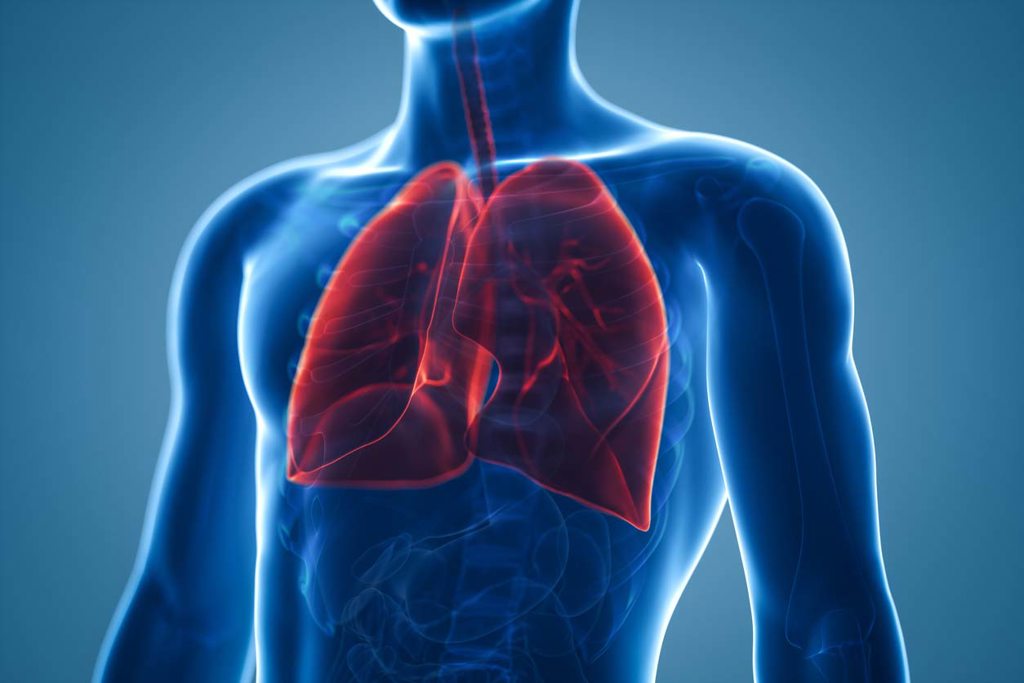Should you Get Screened for Lung Cancer?
Lung cancer is the third most common cancer and the leading cause of cancer-related deaths in the U.S., and according to the American Lung Association, the rate of new lung cancer cases in Pennsylvania is “significantly higher” than the national average. Fortunately, early detection and new treatments are improving the survival rate for people throughout Pennsylvania.
What causes lung cancer?
Lung cancer occurs when malignant cells form and multiply in the lining of the lungs. There are two main types of lung cancer: non-small cell lung cancer and small cell lung cancer.
The majority (80-85%) of all lung cancer are non-small cell. This type occurs when the cancer cells form in your lung tissues. While it is more common, it is less aggressive than small cell, which happens when abnormal cells in your lung grow fast and uncontrollably, often starting in your airways and then spreading to other parts of your body.

Smoking is the leading cause of most lung cancers, affecting both smokers and those exposed to secondhand smoke.
“Smoking leads to cancer by damaging the cells lining the lungs,” said Jan W. Madison, MD, a board-certified pulmonologist at Penn Highlands Lung Center. “Cigarette smoke contains numerous cancer-causing substances, known as carcinogens. When inhaled, these carcinogens begin to alter lung tissue almost immediately.”
“Initially, the body may repair the damage, but repeated exposure gradually harms the healthy lung cells,” added Dr. Madison. “Over time, this ongoing damage causes cellular changes, which can eventually lead to the development of cancer.”
Lung cancer can also occur in individuals who have never smoked or been exposed to secondhand smoke. In non-smokers, lung cancer may be caused by radon, air pollution, a family history of lung cancer or exposure to asbestos.
What are the symptoms?
Symptoms of lung cancer usually occur only after the disease is advanced. They may include:
- A new cough that does not go away
- Chest pain
- Coughing up blood, even a small amount
- Hoarseness
- Shortness of breath
- Wheezing
If the cancer has spread to other parts of the body, you may experience:
- Bone pain
- Headache
- Losing weight without trying
- Loss of appetite
- Swelling in the face or neck
Should you get screened for lung cancer?
For individuals at risk of developing lung cancer, a CT screening can greatly reduce the risk of death by detecting the cancer early, when it is most treatable. This screening uses a non-invasive imaging test called a low-dose CT scan, which captures detailed images of the lungs using a much smaller dose of radiation than a standard chest CT scan.
In general, the criteria for lung cancer screening are:
- Age 55-74
- Current smoker or a smoker who has quit within the past 15 years
- Smoking history of 30 or more “pack years” (a pack a day for 30 years or two packs a day for 15 years)
In addition, patients with a family history of cancer or people exposed to secondhand smoke or environmental toxins, such as chemicals at work, may also be recommended for screening. Everybody should discuss cancer screenings with their primary care provider.
How is lung cancer treated?
Lung cancer treatment varies based on the type and stage of the cancer. Non-small cell lung cancer may be treated with surgery, chemotherapy, radiation therapy, targeted therapy or a combination of these approaches. Small cell lung cancer is typically treated with chemotherapy and radiation therapy.
Penn Highlands Healthcare provides some of the most comprehensive pulmonary care in Pennsylvania. A team of dedicated lung doctors and respiratory therapists provides detailed diagnoses and offers the latest therapies to treat every type of pulmonary condition, including cancer, asthma, emphysema, COPD, pneumonia, pulmonary fibrosis and more. To learn more, visit www.phhealthcare.org/lungcenter.

